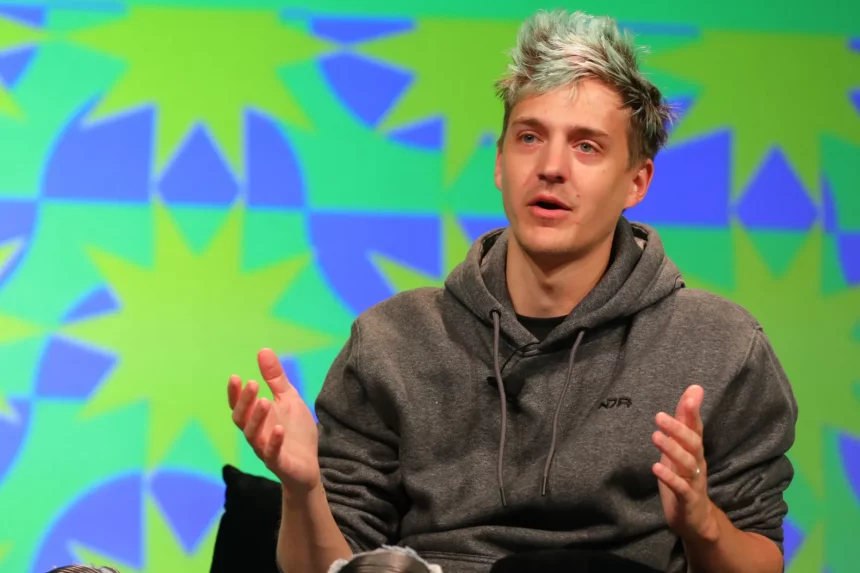The Impact of Ninja’s Cancer Diagnosis on the Gaming Community
The shockwaves rippled through the gaming community as news broke that one of its most beloved figures, YouTuber Ninja, had been diagnosed with cancer. Tyler Blevins, widely known as Ninja, shared the sobering news with his legion of fans through a heartfelt message on Twitter.
This announcement not only sent shock and concern through his fanbase but also sparked conversations about the importance of regular health checkups and the unexpected ways cancer can manifest.
Ninja’s Announcement
The gaming world was taken aback when Ninja, one of its most celebrated figures, announced his diagnosis with cancer. This news sent shockwaves through social media, eliciting a wave of support and concern from his vast array of followers and the gaming community at large, which united in solidarity with Ninja during this difficult period.
In a heartfelt message shared on Twitter, Ninja revealed that he had been diagnosed with melanoma. His forthrightness in discussing his condition struck a chord with many, creating a bond of empathy and support among his fans. The diagnosis followed a routine checkup with a dermatologist, prompted by his wife Jessica, which underscored the life-saving importance of regular health screenings.
Despite the gravity of his situation, Ninja maintained a positive demeanor, expressing gratitude that the cancer was detected early. His resilience and hopeful perspective not only inspired his followers but also spotlighted the crucial role of optimism in facing such challenges.
Ninja’s journey brought to the forefront the importance of preventive healthcare, demonstrating how early detection through routine screenings can significantly alter the course of one’s health journey.
Understanding Melanoma
Melanoma, a formidable form of skin cancer, manifests through the abnormal proliferation of melanocytes, the pigment-producing cells within the skin. These cells undergo malignant transformation, leading to the formation of cancerous tumors. While the primary risk factor for melanoma is exposure to ultraviolet (UV) light from the sun or tanning beds, other factors contribute to its development.
These include age, with older individuals being more susceptible, as well as inherent characteristics such as fair skin, numerous moles, and a familial predisposition to skin cancer. Despite the established link between UV exposure and melanoma, the association between melanoma occurrence on less-exposed body areas, like the foot, and sunlight remains elusive.
This complexity underscores the multifaceted nature of cancer etiology and emphasizes the ongoing need for research to elucidate its origins comprehensively.
Preventive Measures and Treatment
Preventive measures play a crucial role in mitigating the risk of melanoma. Beyond minimizing UV exposure through protective measures like sunscreen and clothing, regular skin examinations and prompt evaluation of suspicious moles are imperative for early detection and intervention.
Early detection stands as a cornerstone in the successful management of melanoma. Detecting melanoma in its incipient stages allows for prompt intervention and increases the likelihood of favorable treatment outcomes. The primary treatment modality for melanoma typically involves surgical excision of the cancerous lesion.
Depending on various factors, including the tumor’s depth, presence of metastases, and patient health status, additional therapies such as chemotherapy, immunotherapy, targeted therapy, or radiation therapy may be employed to eradicate residual cancer cells and prevent disease recurrence.
Community Support and Call to Action
Following the revelation of Ninja’s cancer diagnosis, social media platforms became inundated with messages of support from fans, fellow content creators, and individuals across the globe. The gaming community rallied behind Ninja, demonstrating solidarity and empathy in response to his health challenge.
With Ninja’s advocacy for regular checkups, he urges individuals to prioritize their health and undergo routine medical screenings for early detection and intervention. His experience underscores the vital message that taking proactive steps in healthcare can be a game-changer in managing health issues.
Ninja’s openness about his health journey encourages open dialogue about health-related topics, destigmatizing discussions about preventive care and advocating for individuals to prioritize their well-being.






